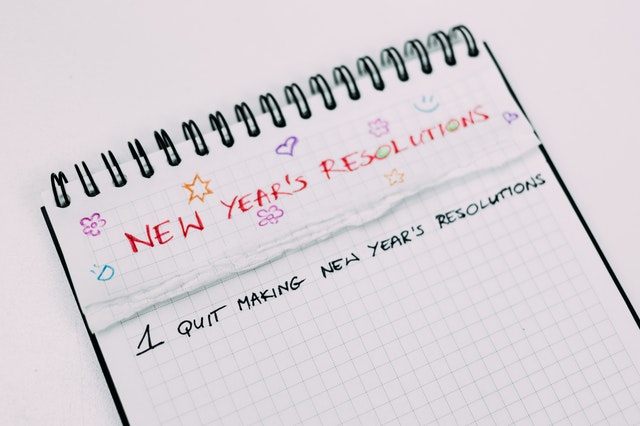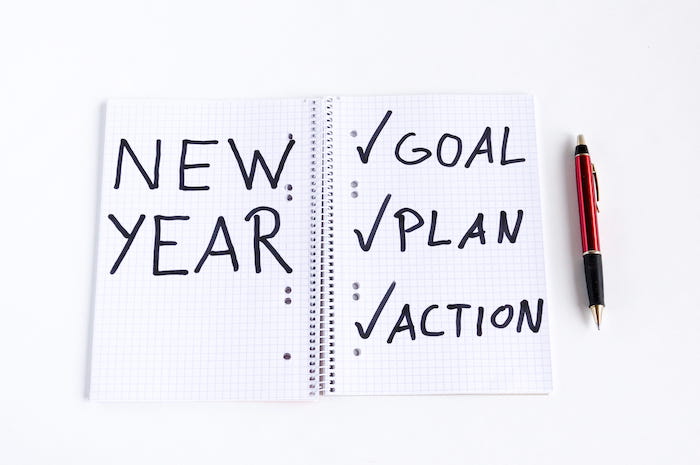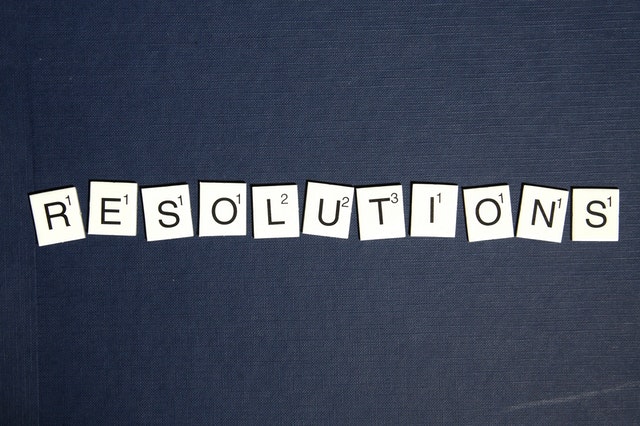As soon as January first rolls around, many people set New Year’s resolutions with a list of things they want to accomplish in the new year. However, just as these goals are set, there also needs to be a plan on how to stick to them and to be sure they’ll be productive. Read on to learn how to set productive goals that you can stick to for the new year and well beyond.
Choosing the Right New Year’s Goals
Goals should be practical, achievable and something you can maintain for weeks, months and years to come. So how do you choose the right goal?
1. Start by writing down the goals you want to accomplish in the new year. Put them somewhere you will constantly see them: on a refrigerator, at your desk, taped on a mirror or door, etc.

2. Look at different areas of your life and identify goals you want to have. Do you want to find a new job? Then create a work goal. Do you want to start saving for retirement? Establish some financial goals. Do you want to find love? Commit yourself to signing up for dating sites or apps.
3. No matter what your goals for the new year are, they need to be realistic. Winning the lottery is not realistic, but opening up a new savings account and regularly adding to it is. Losing 30 pounds in six weeks is not realistic, but getting a gym membership and committing to attendance is attainable.
4. Every goal should be measurable in some way. Financial goals are measurable if you set a certain amount you want to save, spend or earn. Health goals can be measurable by committing to cutting your food intake or going to the gym.
Choosing the right goals will not only help you come out of the gate feeling confident and energized in the new year but will help make the process all the more enjoyable.
Stick to Your New Year’s Goals

Establishing your goals is easy, accomplishing them in the new year is something else entirely. According to John Norcross, a psychology professor at Scranton University, resolutions can take between three to six months before they begin to feel like a routine part of your life. Norcross also states that after six months, just a little more than 40 percent of people will stick to their January 1 resolutions. How can you be one of them?
Plan Ahead
Don’t let the words “New Year’s resolution” allow you to think you should start preparing on January first. Instead, start planning ahead and begin thinking about what the resolution is, how you will accomplish it and what success looks like, well before the date. Start thinking ahead of time about what goals you are likely to keep.
Phrase It Right

This may sound silly to some, but how your goal is framed in your mind can make a big difference in it being a productive goal. A Stockholm and Linkoping University study analyzed resolutions by 1,066 people. What they found was that New Year’s goals were likely to be less successful based on on how the goal was phrased, as well as how much support someone was received. In this instance, saying “I will go to the gym more” was more likely to be accomplished than someone who said “I will quit sweets.” A most positive take would be to say, “I will eat fruit during the day.”
Limit Your Resolutions

One of the best steps to ensure you stick to a New Year’s goal is to only choose one or two at a time. There very well may be a laundry list of things you would like to accomplish in the new year. The reality is that you very likely can only focus on one or two of them and be successful. Healthy habits and behavior take time to become a normal part of your life as noted by John Norcross above. By keeping the focus on a limited list of goals, you are far more likely to find success.
Reduce Environmental Triggers
If your goal is to lose weight or give up sweets, then your environment needs to change. This could mean it’s time to throw out all of the sweets in your kitchen or give up that piece of chocolate after dinner every night. By identifying the places you are most likely to allow your bad habits to take over, you can work to remove any of the triggers that may cause you to backslide. Remove sweets and put fruit on the kitchen counter. You will be more likely to choose them instead of the sweets.
Don’t Stop If You Slip

Goals can be hard and are often meant to be. The last thing you want to do is be too hard on yourself if you slip, as it’s perfectly normal. You can’t expect yourself to go cold turkey on sweets January first without having an urge every now and then. Go ahead and treat yourself one night. Similarly, if one week you have extra work or don’t feel well, don’t worry about not going to the gym. Your body and mind need to rest and recharge sometimes. When these instances happen and they will, get right back into it and keep pushing forward.
Conclusion
If all these tips are too difficiult to remember, then keep a familiar acronym in mind. SMART: Specific, Measurable, Achievable, Relevant, Time-bound. It wraps up many of the above tips, and adhering to this will help you firmly establish a desired goal and outcome.
New Year’s goals and others can be hard to attain. They are not supposed to be easy. Changing habits and behavior is not now and has never been something you can achieve overnight, but they can make you more productive in your personal and professional lives. Read on to learn what to do once you accomplish your goals.



